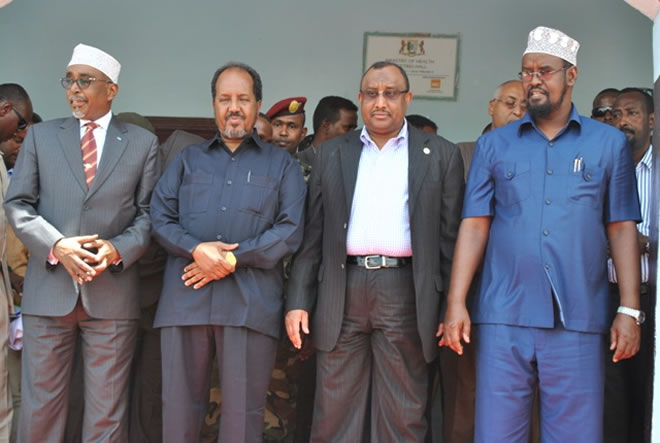The central government of Somalia faces tough choices in dealing with regional states whereby some regional states’ leaders call the Somali President as their ‘counterpart’.

The issue has also created a hot debate among Somalis who took to the social media to match up to the Somali leaders with top regional state officials.
Somali government which maintained tolerance towards the stimulating situation thus far seems to be losing forbearance at last, with the parliament speaker Mohamed Osman Jawari nixes calling them as regional states but rather a more belittled title: interim administrations.
He stated that calling some ‘interim’ administrations as regional states violates the country’s constitution.
“They are not regional states, but rather interim administrations – you can fittingly call a regional state as an administration which has at least two regions under its control.” He said at a parliament
meeting on Thursday.

Mr. Jawari, Speaker of the Somali parliament
He didn’t refer certain administrations; however, his caveat indicates the government’s intolerance towards the number of regional administrations in Somalia.
Mr. Jawari told the legislators that only states endorsed by the parliament can be referred as ‘regional states’.
As Somalia started adopting federal system across the country, rival clans have formed their own administrations, raising concerns of further fragmentation among the Somalis who have been fighting each other in civil war since 1991.
Somalia currently has a central government; and imposed a relative stability in large parts of the country after the ouster of militants from the capital and surrounding regions.
According to a recent research project by the Heritage Institute for Policy studies, a think tank based in Mogadishu, majority of Somalis favor a federal system of governance, despite serious misgivings.
The survey said that the majority of those surveyed consider federalism as the best way to achieve a power-sharing mechanism among Somali clans whereas a vertical system of governance with a highly
centralized unitary state is seen as inherently undemocratic and oppressive. People demand horizontal power structures where they can retain a fair degree of influence at the local level.